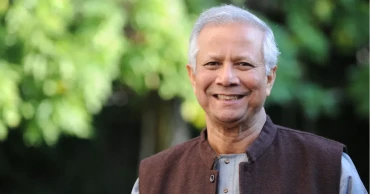Moscow
Putin holds talks with Slovakian PM Fico, in a rare visit to Moscow by an EU leader
Russian President Vladimir Putin on Sunday hosted Slovakia’s prime minister, Robert Fico, in a rare visit to the Kremlin by an EU leader since Moscow's all-out invasion of Ukraine in February 2022.
Fico arrived in Russia on a “working visit” and met with Putin one-on-one on Sunday evening, Kremlin spokesman Dmitry Peskov told Russia’s RIA news agency. According to Peskov, the talks were expected to focus on “the international situation” and Russian natural gas deliveries.
Russian natural gas still flows to some European countries, including Slovakia, through Ukraine under a five-year agreement signed before the war that is due to expire at the end of this year. At a summit in Brussels on Thursday, Ukrainian President Volodymyr Zelenskyy told EU leaders that Kyiv has no intention of renewing the deal, something Fico insisted will harm his country's interests.
Fico said on Facebook after meeting with Putin that he informed European Union leaders about his trip on Friday.
He said the talks in Moscow were a reaction to what Zelenskyy told him on Thursday in Brussels, that he is against any gas transit to Slovakia through Ukraine. Fico also said that Zelenskyy is in favor of sanctions against Russia’s nuclear program, which he said was unacceptable and against the interest of his country that relies on nuclear energy.
Fico said Putin confirmed to him that Russia is still ready to deliver gas to the West. He said the two also discussed the military situation in Ukraine, chances for a peaceful solution to the war and the bilateral relations between their two countries which Fico said they will seek to “standardize.”
His trip was condemned by the major Slovak opposition parties.
Slovakia last month signed a short-term pilot contract to buy natural gas from Azerbaijan, as it prepares for a possible halt to Russian supplies through Ukraine. Earlier this year, it struck a deal to import U.S. liquefied natural gas through a pipeline from Poland.
The country can also receive gas through Austrian, Hungarian and Czech networks, enabling imports from Germany among other potential suppliers.
Read: Germany's Merkel recalls Putin's 'power games' and contrasting US presidents in her memoirs
Visits and phone calls from European leaders to Putin have been rare since Moscow sent troops into Ukraine, although Hungary’s Prime Minister Viktor Orbán visited Russia in July, and Austrian Chancellor Karl Nehammer met with the Russian leader just weeks into the full-scale war. Both trips drew condemnation from Kyiv and European leaders.
Orbán, widely seen as having the warmest relations with Putin among EU leaders, has routinely blocked, delayed or watered down EU efforts to assist Kyiv and impose sanctions on Moscow for its actions in Ukraine. He has long argued for a cessation of hostilities in Ukraine but without outlining what that might mean for the country’s territorial integrity or future security.
Fico’s views on Russia’s war on Ukraine differ sharply from most other European leaders. The Slovakian PM returned to power last year after his leftist party Smer (Direction) won parliamentary elections on a pro-Russia and anti-American platform. Since then, he has ended his country’s military aid for Ukraine, lashed out at EU sanctions on Russia, and vowed to block Ukraine from joining NATO.
Read more: Russia to use new missile again in 'combat conditions': Putin
Fico has also been a rare senior EU politician to appear on Russian state TV following Moscow’s invasion of Ukraine. In an interview with the Rossiya-1 channel in October, he contended the West has “prolonged the war” by supporting Ukraine, adding that sanctions against Russia were ineffective. He declared that he was ready to negotiate with Putin.
Fico also vowed to attend a military parade in Moscow next May that will mark the 80th anniversary of Nazi Germany’s defeat in World War II. The Kremlin has used the annual “Victory Day” celebrations to tout its battlefield prowess, and Putin hailed Russian troops fighting in Ukraine as “heroes” at this year’s event.
1 year ago
Assad flees to Moscow after fall of Damascus: Russian state media
Syrian President Bashar Assad has fled to Moscow after losing control of Damascus to rebel forces in a swift and dramatic advance that ended his family’s half-century-long rule. Russian state media reported that Assad was granted asylum by Moscow, his longtime ally, following negotiations with insurgent groups.
The rebel victory sparked widespread celebrations in Damascus, with residents taking to the streets to mark what they called a new chapter for Syria. Gunfire echoed in celebration as people waved revolutionary flags, reminiscent of the Arab Spring protests that initially called for reforms before spiraling into Syria’s nearly 14-year-long civil war.
U.S. President Joe Biden hailed Assad's downfall as a “fundamental act of justice,” crediting international efforts to weaken Assad’s allies, including Russia, Iran, and Hezbollah. However, Biden acknowledged the risks and uncertainties ahead, emphasizing the need to evaluate the actions of the victorious rebel factions.
Rebels Assert Control
Syrian state media confirmed that Assad had relinquished power and fled, with insurgents taking control of major institutions in Damascus. Rebel leaders, including Abu Mohammed al-Golani of Hayat Tahrir al-Sham (HTS), vowed to establish a pluralistic and inclusive state. Al-Golani, formerly associated with al-Qaida, described Assad’s departure as a victory for the Islamic nation and renounced sectarian governance in favor of national unity.
Amid the celebrations, Damascus residents prayed in mosques and roamed the streets, chanting anti-Assad slogans. Meanwhile, rebel forces sought to reassure minority groups, including Druze, Alawites, and Christians, promising equal treatment for all Syrians.
Read: Who is Abu Mohammed al-Julani, leader of HTS in Syria?
“We won’t repeat Assad’s mistakes,” said rebel commander Anas Salkhadi in a televised statement, appealing for calm and unity among the nation’s diverse communities.
Challenges Ahead
The transition poses significant challenges as Syria remains divided among rival factions. Turkish-backed opposition groups continue to clash with U.S.-allied Kurdish forces in the north, while remnants of the Islamic State remain active in remote areas.
The fall of Assad marks a turning point in the region, further weakening Iran and Hezbollah, both of which played key roles in supporting his regime. Iran’s ambassador to Syria acknowledged the government’s inability to resist the rebels and called for a peaceful resolution to prevent further bloodshed.
International actors, including the United Nations and regional powers, are calling for an orderly political transition to prevent the country’s collapse. Emergency meetings in Geneva and Qatar have underscored the urgency of coordinating efforts among global stakeholders.
Regional Repercussions
Assad’s ouster has also reignited tensions along Syria’s borders. Israel announced the capture of a buffer zone in the Golan Heights, citing security concerns following the Syrian army's retreat. The Arab League condemned Israel’s actions, accusing it of exploiting Syria’s crisis to expand its territorial claims.
Read more: Syria’s opposition declares Damascus free from Assad regime
As Syrians grapple with the aftermath of Assad’s fall, the road ahead remains fraught with uncertainty. For many, the priority is rebuilding their war-torn nation while ensuring peace and stability in a deeply fractured society.
Source: With inputs from agencies
1 year ago
Dr Yunus appointed chair of Moscow Financial University’s international advisory board
Nobel laureate Dr Muhammad Yunus has been appointed chair of the international advisory board of Moscow’s Financial University (under the government of the Russian Federation).
On November 23, he joined a high-level strategic meeting with Prof Stanislav Prokofiev, Rector of the Financial University, and his colleagues.
The Financial University hosted the meeting. At the meeting, Dr Yunus was invited to be the chair of the university’s International Advisory Board.
Creation of Palestine state urgent; US key actor in bringing this to reality: Dr Yunus
Dr Yunus gave his consent to this appointment, the Yunus Center said today.
The Financial University is one of the top five universities in Russia with 3,000 academic staff. Dr Yunus was invited to give a lecture to the faculty and students of the university last year on his thoughts on creating a new civilization based on social business, working towards achieving three zero goals – zero net carbon emissions, zero wealth concentration, and zero unemployment.
The International Advisory Board will be a deliberative collegial body. Its primary goals are to attract the best international experience, to provide in-depth expert analysis, and to prepare proposals for strategic development, as well as academic, research and innovation activities of the university.
‘False and fabricated’: Dr Yunus’ lawyer says about Tk 25.22cr embezzlement case
During the meeting, the rector of the Russian university explained the role of the international advisory board in developing the university’s academic programme and in designing the future direction of research at the university.
He explained how the university community admires Dr Yunus’ concept of social business.
He also said that Financial University would like to introduce the concept in their academic programmes.
He said that students will be encouraged to design and implement social businesses during their academic years at the university, and the institution will provide financial support to the student-entrepreneurs to start their social businesses.
‘Committed no crime, not afraid,’ says Dr Yunus at ACC
The meeting was also attended by Professor Mikhail Eskindarov, President of the University; Professor Ekaterina Kameneva, Vice-Rector for Academic Affairs; Professor Kirill Babaev, Director of the Center for International Scientific and Educational Projects; Liliya Prikhodko, Head of the International Relations Department; and Mikhail Mamuta, Head of the Service for the Protection of Financial Services to Consumers and Minority Shareholders, Bank of Russia, the Central Bank of Russia.
The participants also discussed the prospects of cooperation between the Financial University and the Yunus Centre.
Rector of the Financial University, Prof Stanislav Prokofiev, expressed his support for the ideas of social business as a guarantee for sustainable and long-term social development.
Case filed against Dr Yunus at Rangpur Labour Court
2 years ago
Aware of Moscow's ‘deliberate mischaracterization’ of US foreign policy, Ambassador Haas’ meetings: Washington says
The United States has said it is aware of Russian Foreign Ministry Spokeswoman Maria Zakharova's “deliberate mischaracterization” of US foreign policy and US Ambassador to Bangladesh Peter Haas’ meetings.
“The United States does not support any political party in Bangladesh. Nor does the United States favor one political party over another,” a State Department spokesperson said on Saturday (November 25, 2023).
The US State Department reiterated that they want what the Bangladeshi people want: free and fair elections conducted in a peaceful manner.
USA will support Bangladesh after election: Momen
To support that shared goal of free and fair elections conducted in a peaceful manner, the US embassy personnel engage and will continue to engage with the government, opposition, civil society, and other stakeholders to urge them to work together for the benefit of the Bangladeshi people, said the State Department spokesperson.
Maria Zakharova, during a weekly briefing on November 22, said that Russia has spoken repeatedly about the attempts by the United States and its allies to influence the internal political process in Bangladesh, ostensibly under the banner of ensuring “transparency and inclusiveness” in the upcoming parliamentary election.
Information has come to light regarding a meeting at the end of October between US Ambassador to Bangladesh Peter Haas and a high-ranking representative of the local opposition, according to the Russian side.
They reportedly discussed plans to organize mass anti-government protests in the country during the meeting, the Russian side said.
In particular, the American Ambassador “promised” the representative of the opposition information support in the event that the authorities use force against participants in “peaceful demonstrations.”
These assurances were purportedly made on behalf of the embassies of the United States, Britain, Australia and several other countries, according to a Facebook post shared by the Russian Embassy in Dhaka.
China's cooperation is vital in ending Russia-Ukraine war: French FM
"How can these actions of the American Ambassador to Bangladesh be regarded? They can be seen as nothing less than gross interference in the internal affairs of a sovereign state on the part of Washington and its satellites, demonstrating open disregard for the norms and rules enshrined in the 1961 Vienna Convention on Diplomatic Relations," the Russian spokeswoman said.
"On our part, we have no doubts regarding the ability of the Bangladeshi authorities to hold the parliamentary election scheduled for January 7, 2024, in full compliance with national legislation, independently, without the help of overseas well-wishers," said the Russian spokeswoman.
2 years ago
Russia says drones damage Moscow buildings in pre-dawn attack, blames Ukraine
Russian air defenses stopped eight drones converging on Moscow, officials said Tuesday, in an attack that authorities blamed on Ukraine, while Russia pursued its relentless bombardment of Kyiv with a third assault on the city in 24 hours.
The Russian defense ministry said five drones were shot down and the systems of three others were jammed, causing them to veer off course. It called the incident a "terrorist attack" by the "Kyiv regime."
The attack caused "insignificant damage" to several buildings, Moscow Mayor Sergei Sobyanin said. Two people received medical attention for unspecified injuries but did not need hospitalization, he said in a Telegram post. Residents of two high-rise buildings damaged in the attack were evacuated, Sobyanin said.
Andrei Vorobyov, governor of the wider Moscow region, said some of the drones were "shot down on the approach to Moscow."
Ukraine made no immediate comment on the attack, which would be one of its deepest and most daring strikes into Russia since the Kremlin launched its full-scale invasion of Ukraine more than 15 months ago.
The attacks have raised questions about the effectiveness of Russia's air defense systems.
A senior Russian lawmaker, Andrei Kartapolov, told Russian business news site RBC that "we have a very big country and there will always be a loophole where the drone can fly around the areas where air defense systems are located."
Kartapolov said the purpose of the attacks was to unnerve the Russian people. "It's an intimidation act aimed at the civilian population," RBC quoted him as saying. "It's designed to create a wave of panic."
Moscow residents reported hearing explosions before dawn. Police were seen working at one site of a crashed drone in southwest Moscow. An area near a residential building was fenced off, and police put the drone debris in a cardboard box before carrying it away.
At another site, apartment windows were shattered and there were scorch marks on the building's front.
It was the second reported attack on Moscow. Russian authorities said two drones targeted the Kremlin earlier this month in what they portrayed as an attempt on President Vladimir Putin's life.
Ukrainian drones have reportedly flown deep into Russia several times. In December, Russia claimed it had shot down drones at airfields in the Saratov and Ryazan regions. Three soldiers were reported killed in the attack in Saratov, which targeted an important military airfield.
Earlier, Russia reported shooting down a Ukrainian drone that targeted the headquarters of its Black Sea Fleet in Sevastopol in Russia-annexed Crimea.
In Ukraine, Russia launched a pre-dawn air raid on Kyiv, killing at least one person and sending the capital's residents again scrambling into shelters.
At least 20 Shahed explosive drones were destroyed by air defense forces in Kyiv's airspace in Russia's third attack on the capital in the past 24 hours, according to early information from the Kyiv Military Administration. Overall, Ukraine shot down 29 of 31 drones fired into the country, most in the Kyiv area, the air force later added.
Before daylight, the buzzing of drones could be heard over the city, followed by loud explosions as they were taken down by air defense systems.
In the overnight attacks on Kyiv, one person died and seven were injured, according to the municipal military administration. A high-rise building in the Holosiiv district caught fire after being hit by debris either from from drones being hit or interceptor missiles.
The building's upper two floors were destroyed, and there may be people under the rubble, the Kyiv Military Administration said. More than 20 people were evacuated.
Resident Valeriya Oreshko told The Associated Press in the aftermath that even though the immediate threat was over, the attacks had everyone on edge.
"You are happy that you are alive, but think about what will happen next," the 39-year-old said.
A resident who gave only her first name, Oksana, said the whole building shook when it was hit.
"Go to shelters, because you really do not know where it (the drone) will fly," she advised others. "We hold on."
Elsewhere in the capital, falling debris caused a fire in a private house in Darnytskyi district and three cars were set alight in Pechersky district, according to the military administration.
The series of attacks that began Sunday included a rare daylight attack Monday that left puffs of white smoke in the blue skies.
On that day, Russian forces fired 11 ballistic and cruise missiles at Kyiv at about 11:30 a.m., according to Ukraine's chief of staff, Valerii Zaluzhnyi. All of them were shot down, he said.
Debris from intercepted missiles fell in Kyiv's central and northern districts during the morning, landing in the middle of traffic on a city road and also starting a fire on the roof of a building, the Kyiv military administration said. At least one civilian was reported hurt.
The Russian Defense Ministry said it launched a series of strikes early Monday targeting Ukrainian air bases with precision long-range air-launched missiles. It claimed the strikes destroyed command posts, radars, aircraft and ammunition stockpiles, but didn't say anything about hitting cities or other civilian areas.
2 years ago
Moscow hosts more Turkey-Syria rapprochement talks
Russia's defense minister on Tuesday hosted his counterparts from Iran, Syria and Turkey for talks that were part of the Kremlin's efforts to help broker a rapprochement between the Turkish and Syrian governments.
The Russian Defense Ministry said the talks focused on “practical steps to strengthen security in the Syrian Arab Republic and to normalize Syrian-Turkish relations.”
Moscow has waged a military campaign in Syria since September 2015, teaming up with Iran to allow Syrian President Bashar Assad’s government to reclaim control over most of the country while Turkey has backed armed opposition to Assad throughout the 12-year conflict.
While the bulk of Russia's armed forces have been busy fighting in Ukraine, Moscow has maintained its military presence in Syria and has also made persistent efforts to help Assad rebuild fractured ties with Turkey and other countries in the region following the civil war that has killed nearly 500,000 people and displaced half of the country’s prewar population.
Also Read: Sweden expels 5 Russian Embassy staff on suspicion of spying
In December, Moscow hosted a surprise meeting of the Turkish and Syrian defense ministers, the first such encounter since Syria’s uprising-turned-civil-war began in 2011. And earlier this month, senior diplomats from Russia, Turkey, Syria and Iran met in Moscow for two days of talks intended to set the stage for a meeting of the four countries' foreign ministers.
The efforts toward a Turkish-Syrian reconciliation come as Turkish President Recep Tayyip Erdogan is under intense pressure at home to send Syrian refugees back amid a steep economic downturn and an increasing anti-refugee sentiment. He faces presidential and parliamentary elections in May.
The Russian Defense Ministry said in its readout of Tuesday’s talks that the parties "reaffirmed their adherence to the preservation of Syria’s territorial integrity and the need to step up efforts to allow a speedy return of Syrian refugees.”
Also Read: UN chief, representatives of the West berate Russian Foreign Minister Lavrov over Ukraine war
The Turkish Defense Ministry issued a similarly worded statement, noting that the four ministers discussed the issue of strengthening security in Syria, the concrete steps that can be taken to normalize ties between Turkey and Syria, the fight against terrorist and extremist groups on the Syrian territory and efforts for the return of Syrian refugees.
The statement said the sides also emphasized the importance of the continuation of the four-party meetings “to ensure and maintain stability in Syria and the region as a whole.”
On Tuesday, Russian Defense Minister Sergei Shoigu also hosted Turkish Defense Minister Hulusi Akar and his counterparts from Syria and Iran for separate bilateral talks.
Turkey has de facto control over large swathes of northwestern Syria, and Assad's government has described the withdrawal of Turkish forces from Syrian territory is a prerequisite for a normalization of ties.
But even as Turkey has supported Syrian opposition fighters in the north, Ankara and Damascus are equally dismayed over the U.S.-backed, Kurdish-led Syrian Democratic Forces in Syria’s northeast. Turkey-backed opposition fighters have clashed with the SDF in the past, accusing them of being an arm of Turkey’s outlawed Kurdistan Workers’ Party, or PKK. The PKK has for decades waged an insurgency within Turkey.
Assad’s government has cast the SDF as a secessionist force that has been pilfering the country’s wealth while controlling Syria’s major oil fields.
The Russian Defense Ministry noted that during Tuesday's talks “special attention was given to countering terror threats and fighting all groups of extremists on Syrian territory.”
2 years ago
Pakistani Foreign Minister Bilawal Bhutto in Moscow on official visit
Pakistan Foreign Minister Bilawal Bhutto Zardari has reached Moscow. He is currently on a two-day official visit, on invitation of his Russian counterpart Sergei Lavrov.
Bilawal Bhutto Zardari was received by senior officials of the Russian foreign ministry, Pakistan’s Ambassador to Russia Shafqat Ali Khan and other embassy officials on Sunday (January 29, 2023) upon his arrival in Moscow, reports Pakistani newspaper Dawn.
Read more: Pakistan's premier apologizes to nation for power outage
The two foreign ministers are scheduled to meet today for official talks.
The Pakistani foreign minister was quoted by Dawn as saying: “I’ve been invited to speak at the international luncheon of the annual National Prayer Breakfast and will make an in-and-out trip for that.”
Meanwhile, as part of Pakistan’s effort to re-engage with the US, the foreign minister and Commerce Minister Syed Naveed Qamar are expected to visit Washington soon.
Read more: Pakistan orders malls to close early amid economic crisis
Bilawal Bhutto Zardari is expected to visit New York to attend a UN-sponsored conference on Muslim women, being held on Pakistan’s initiative on March 8. He is also likely to attend another UN event in New York on March 15 to commemorate the International Day to Combat Islamophobia, as per Pakistani media report.
3 years ago
‘What madness looks like’: Russia intensifies Bakhmut attack
Russian forces are escalating their onslaught against Ukrainian positions around the wrecked city of Bakhmut, Ukrainian officials said, bringing new levels of death and devastation in the grinding, monthslong battle for control of eastern Ukraine that is part of Moscow’s wider war.
“Everything is completely destroyed. There is almost no life left,” Ukrainian President Volodymyr Zelenskyy said late Monday of the scene around Bakhmut and the nearby Donetsk province city of Soledar.
“The whole land near Soledar is covered with the corpses of the occupiers and scars from the strikes,” Zelenskyy said. “This is what madness looks like.”
The Kremlin, whose invasion of its neighbor 10 1/2 months ago has suffered numerous reversals, is hungry for victories. Russia illegally annexed Donetsk and three other Ukrainian provinces in September, but its troops have struggled to advance.
After Ukrainian forces recaptured the southern city of Kherson in November, the battle heated up around Bakhmut.
Ukraine’s deputy defense minister, Hanna Malyar, said Russia has thrown “a large number of storm groups” into the fight for the city. “The enemy is advancing literally on the bodies of their own soldiers and is massively using artillery, rocket launchers and mortars, hitting their own troops,” she said.
Pavlo Kyrylenko, the Donetsk region’s Kyiv-appointed governor, on Tuesday described the Russian attacks on Soledar and Bakhmut as relentless.
“The Russian army is reducing Ukrainian cities to rubble using all kinds of weapons in their scorched-earth tactics,” Kyrylenko said in televised remarks. “Russia is waging a war without rules, resulting in civilian deaths and suffering.”
Wounded soldiers arrive around the clock for emergency treatment at a Ukrainian medical stabilization center near the front line around Bakhmut. Medics fought for 30 minutes Monday to save a soldier, but his injuries were too severe.
Another soldier suffered a head injury after a fragment pierced his helmet. Medics quickly stabilized him enough to transfer him to a military hospital.
“We fight to the end to save a life,” Kostyantyn Vasylkevich, a surgeon and the center’s coordinator, told The Associated Press. “Of course, it hurts when it is not possible to save them.”
The Moscow-backed leader of the occupied areas of Donetsk said Tuesday that Russia’s forces were “very close” to taking over Soledar. But the gains were coming “at a very high price,” Denis Pushilin told Russian state TV.
Control over the city would create “good prospects” for taking over Bakhmut, as well as Siversk, a town further north where Ukrainian fortifications “are also quite serious,” Pushilin said.
The U.K. Defense Ministry concurred with that appraisal of the battle developments. Russian troops alongside soldiers from the Wagner Group, a Russian private military contractor, have advanced in Soledar and “are likely in control of most of the settlement,” the ministry tweeted Tuesday.
It said that taking Soledar, 10 kilometers (6 miles) north of Bakhmut, was likely Moscow’s immediate military objective and part of a strategy to encircle Bakhmut. But it added that “Ukrainian forces maintain stable defensive lines in depth and control over supply routes” in the area.
Read more: Ukraine faces grim start to 2023 after fresh Russian attacks
The Wagner Group’s leader, Dmitry Prigozhin, confirmed in a post on a Russian social media platform Tuesday that his forces are fighting in the area and acknowledged “heavy battles” in Soledar against a Ukrainian army he said “bravely fights.”
A Western official, speaking on condition of anonymity, said the Wagner Group “has moved from being a niche sideshow of Russia’s war to a major component of the conflict,” adding that its forces now make up as much as a quarter of Russian combatants.
An exceptional feature of the fighting near Bakhmut is that some of it has taken place around entrances to disused salt mine tunnels which run for some 200 kilometers (120 miles), the British intelligence report noted.
“Both sides are likely concerned that (the tunnels) could be used for infiltration behind their lines,” it said.
In Russia, two signs emerged Tuesday that officials were grappling with the military shortcomings revealed during the conflict in Ukraine.
Russian Defense Minister Shoigu, whose performance has been fiercely criticized in some Russian circles but who has retained Russian President Vladimir Putin’s confidence, said Tuesday that his military would use its experience in Ukraine to improve combat training.
Military communications and control systems will be improved using artificial intelligence, Shoigu said, and troops will be given better tactical gear and equipment.
The second indication of trouble involves Russia’s production of weapons and other supplies its military needs for the fight in Ukraine. The deputy head of Russia’s Security Council, Dmitry Medvedev, warned that officials who failed to meet deadlines for such items could face criminal charges.
Putin appointed Medvedev last month to head a new commission tasked with trying to solve the military’s supply problems. Numerous reports have suggested Russia is running low on certain weapons and was sending some troops into battle with insufficient equipment and clothing.
Part of the Kremlin’s challenge is keeping up with the weapons and supplies that Western allies have provided to Ukraine. Kremlin spokesman Dmitry Peskov said Tuesday that NATO members “have become a party to the conflict, pumping weapons, technology and intelligence data into Ukraine.”
Several front-line cities in eastern Ukraine’s Donetsk and Luhansk provinces have witnessed intense fighting in recent months.
Together, the provinces make up the Donbas, a broad industrial region bordering Russia that Putin identified as a focus from the war’s outset and where Moscow-backed separatists have fought since 2014.
Russia’s grinding eastern offensive captured almost all of Luhansk during the summer. Donetsk escaped the same fate, and the Russian military subsequently poured manpower and resources around Bakhmut.
Read more: Ukraine reports more Russian drone attacks
Taking Bakhmut would disrupt Ukraine’s supply lines and open a route for Russian forces to press on toward Kramatorsk and Sloviansk, key Ukrainian strongholds in Donetsk.
Like Mariupol and other contested cities, Bakhmut has endured a long siege without water and power even before Moscow launched massive strikes to take out public utilities across Ukraine.
Kyrylenko, the Donetsk region’s governor, estimated more than two months ago that 90% of Bakhmut’s prewar population of over 70,000 had fled since Moscow focused on seizing the entire Donbas.
Ukraine’s presidential office said at least four civilians were killed and another 30 wounded in Russian shelling between Monday and Tuesday.
Vitaliy Kim, the governor of the southern Mykolaiv region, said Russian forces shelled the port of Ochakiv and the area around it late Monday and again early Tuesday. He said 15 people, including a 2-year-old child, were wounded in Monday’s shelling.
3 years ago
Ukrainian rocket strike kills 63 Russian troops: Moscow
Ukrainian forces fired rockets at a facility in the eastern Donetsk region where Russian soldiers were stationed, killing 63 of them, Russia’s defense ministry said Monday, in one of the deadliest attacks on the Kremlin’s forces since the war began more than 10 months ago.
Ukrainian forces fired six rockets from a HIMARS launch system and two of them were shot down, a defense ministry statement said. It did not say when the strike happened.
The strike, using a U.S.-supplied precision weapon that has proven critical in enabling Ukrainian forces to hit key targets, delivered a new setback for Russia which in recent months has reeled from a Ukrainian counteroffensive.
According to the governor of Russia’s Samara region, Dmitry Azarov, an unspecified number of residents of the region were among those killed and wounded by the strike on the town of Makiivka.
Russian military bloggers, whose information has largely been reliable during the war, said ammunition stored close to the facility had exploded in the attack and contributed to the high number of casualties.
Expressing anger at the losses, Daniil Bezsonov, an official with the Russian-appointed administration in Russian-occupied Donetsk, called for the punishment of military officers who ordered a large number of troops to be stationed at the facility.
The Ukrainian military appeared to acknowledge the attack Monday, with the General Staff confirming that Makiivka was hit on Dec. 31, and saying 10 Russian military vehicles were destroyed or damaged. It added that Russian personnel losses were still being clarified.
In a claim that could not be independently verified, the Strategic Communications Directorate of Ukraine’s Armed Forces had maintained Sunday that some 400 mobilized Russian soldiers were killed in a vocational school building in Makiivka and about 300 more were wounded. The Russian statement said the strike occurred “in the area of Makiivka” and didn’t mention the vocational school.
Meanwhile, Russia deployed multiple exploding drones in another nighttime attack on Ukraine, officials said Monday, as the Kremlin signaled no letup in its strategy of using bombardments to target the country’s energy infrastructure and wear down Ukrainian resistance to its invasion.
The barrage was the latest in a series of relentless year-end attacks, including one that killed three civilians on New Year’s Eve.
On Monday, Kyiv Mayor Vitali Klitschko said that 40 drones “headed for Kyiv” overnight. All of them were destroyed, according to air defense forces.
Klitschko said 22 drones were destroyed over Kyiv, three in the outlying Kyiv region and 15 over neighboring provinces.
Energy infrastructure facilities were damaged as the result of the attack and an explosion occurred in one city district, the mayor said. It wasn’t immediately clear whether that was caused by drones or other munitions. A wounded 19-year-old man was hospitalized, Klitschko added, and emergency power outages were underway in the capital.
In the outlying Kyiv region a “critical infrastructure object” and residential buildings were hit, Gov. Oleksiy Kuleba said.
Russia has carried out airstrikes on Ukrainian power and water supplies almost weekly since October.
Ukrainian President Volodymyr Zelenskyy has accused Russia of “energy terrorism” as the aerial bombardments have left many people without heat amid freezing temperatures. Ukrainian officials say Moscow is “weaponizing winter” in its effort to demoralize the Ukrainian resistance.
Read more: Putin, Xi vow closer ties as Russia bombards Ukraine again
Ukraine is using sophisticated Western-supplied weapons to help shoot down Russia’s missiles and drones, as well as send artillery fire into Russian-held areas of the country.
Moscow’s full-scale invasion on Feb. 24 has gone awry, putting pressure on Russian President Vladimir Putin as his ground forces struggle to hold ground and advance. He said in his New Year’s address to the nation that 2022 was “a year of difficult, necessary decisions.”
Putin insists he had no choice but to send troops into Ukraine because it threatened Russia’s security — an assertion condemned by the West, which says Moscow bears full responsibility for the war.
Russia is currently observing public holidays through Jan. 8.
Drones, missiles and artillery shells launched by Russian forces also struck areas across Ukraine.
Five people were wounded in the Monday morning shelling of a Ukraine-controlled area of the southern Kherson region, its Ukrainian Gov. Yaroslav Yanushevich said on Telegram.
The Russian forces attacked the city of Beryslav, the official said, firing at a local market, likely from a tank. Three of the wounded are in serious condition and are being evacuated to Kherson, Yanushevich said.
Seven drones were shot down over the southern Mykolaiv region, according to Gov. Vitali Kim, and three more were shot down in the southeastern Dnipropetrovsk region, Gov. Valentyn Reznichenko said.
In the Dnipropetrovsk region, a missile was also destroyed, according to Reznichenko. He said that energy infrastructure in the region was being targeted.
Ukraine’s Air Force Command reported Monday that 39 Iranian-made exploding Shahed drones were shot down overnight, as well as two Russian-made Orlan drones and a X-59 missile.
“We are staying strong,” the Ukrainian defense ministry tweeted.
A blistering New Year’s Eve assault killed at least four civilians across the country, Ukrainian authorities reported, and wounded dozens. The fourth victim, a 46-year-old resident of Kyiv, died in a hospital on Monday morning, Klitschko said.
Multiple blasts rocked the capital and other areas of Ukraine on Saturday and through the night. The strikes came 36 hours after widespread missile attacks Russia launched Thursday to damage energy infrastructure facilities, and the unusually quick follow-up alarmed Ukrainian officials.
In Russia, a Ukrainian drone hit an energy facility in the Bryansk region that borders with Ukraine, Bryansk regional governor Alexander Bogomaz reported on Monday morning. A village was left without power as a result, he said.
Read more: Ukraine conflict casts shadow on Russia as it enters 2023
3 years ago
Putin claims Moscow ready for Ukraine talks as attacks go on
President Vladimir Putin claimed that Russia is ready for talks to end the war in Ukraine even as the country faced more attacks from Moscow — a clear sign that peace wasn’t imminent.
Putin said in a state television interview, excerpts of which were released on Sunday afternoon that Russia is “prepared to negotiate some acceptable outcomes with all the participants of this process.”
He said that “it’s not us who refuse talks, it’s them” — something the Kremlin has repeatedly stated in recent months as its 10-month old invasion kept losing momentum.
Putin also repeated that Moscow has “no other choice” and said he believed the Kremlin was “acting in the right direction.”
READ: Some Ukrainians move Christmas to detach again from Russia
“We’re defending our national interests, the interests of our citizens, our people,” he said.
Putin’s remarks come as attacks on Ukraine continue. A country-wide air raid alert was announced twice on Sunday alone, and three missiles in the afternoon hit the city of Kramatorsk in the partially occupied Donetsk region, local officials reported.
The missiles hit an industrial area of the city, and there weren’t any casualties, according to the Ukrainian governor of Donetsk, Pavlo Kyrylenko. Kyrylenko said that the city of Avdiivka was also attacked on Sunday with six rounds of shelling, and a woman was wounded there.
Elsewhere in the front-line region, around the city of Bakhmut, where fierce battles have been underway in recent weeks, the Russian forces were struggling to keep up the pace of their offensive, a U.S.-based think tank reported this weekend.
“Russian forces’ rate of advance in the Bakhmut area has likely slowed in recent days, although it is too early to assess whether the Russian offensive to capture Bakhmut has culminated,” the Institute for the Study of War wrote in its recent update.
The think tank cited Russian military bloggers, who it said have recently acknowledged “that Ukrainian forces in the Bakhmut area have managed to slightly slow down the pace of the Russian advance around Bakhmut and its surrounding settlements.”
READ: A Christmas season without its traditional glow in Ukraine
Sources on Ukrainian social media “previously claimed that Ukrainian forces completely pushed Russian forces out of the eastern outskirts of Bakhmut” around Dec. 21, the report added.
“Russian forces will likely struggle to maintain the pace of their offensive operations in the Bakhmut area and may seek to initiate a tactical or operational pause,” the institute concluded.
A day before, a deadly Russian attack on the southern city of Kherson, retaken by Ukrainian forces last month, killed and wounded scores of people.
The Russian forces shelled Ukrainian-held areas of the partially occupied Kherson region 71 times over the past 24 hours, including 41 attacks on the city of Kherson, the region’s Ukrainian governor Yaroslav Yanushevich reported on Sunday.
A total of 16 people have been killed, according to the official, including three emergency workers killed in the process of demining the Berislav district of the region. Yanushevich said that 64 more have been wounded.
In the neighboring Dnipropetrovsk region, the city of Nikopol was shelled overnight from heavy artillery, Gov. Valentyn Reznichenko said. No casualties have been reported.
3 years ago

















